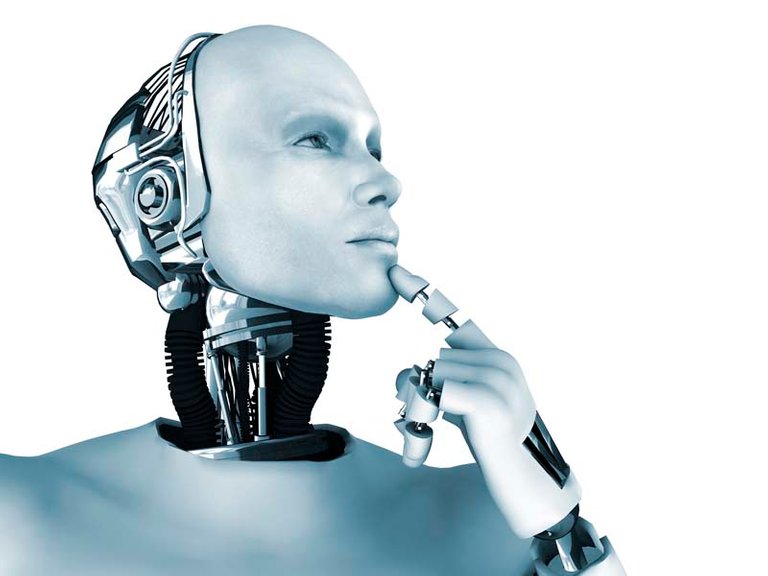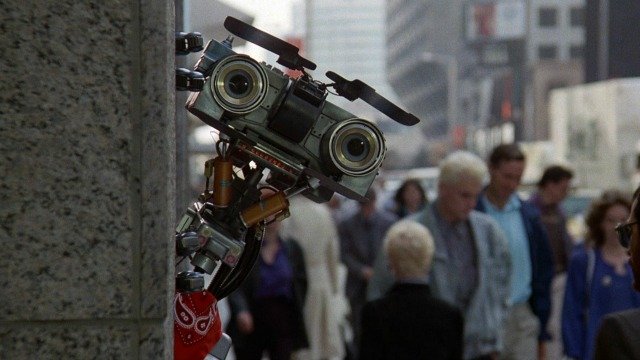
A new documentary, Pain In The Machine, from the University of Cambridge involved a number of experts in the robotics field, who came together in order to discuss the notion of whether or not robots should be programmed to feel pain.
The documentary explores the social and ethical questions surrounding this topic and the possible pros and cons of programming robots for pain responses.

Some say that by following through with programming them for pain that it might prevent the machines from one day trying to harm themselves or others. Others in the field think that by trying to make the robots more life-like it's going to turn out badly (for them or us) and so they are weary to move in the direction of making these sorts of changes. But others insists that allowing the robots to feel pain could also enable them to more efficiently protect themselves.

If pain is to be considered a pinnacle of consciousness or a humanising experience, then is it one that we should eventually enable robots to feel?

By moving in this direction, some experts in the field say that we could one day be able to develop machines that are just as complex as we are and have abilities similar to ours, like the ability to feel pain. And when it comes to enabling those machines to feel pain, the researchers have said that it isn't a very complex process. And it is something that to a small extent already exists within artificial intelligent designs.
We are continually developing sophisticated machines all around the world in the field of artificial intelligence, and the robotics market is expected to hit $139 billion by 2019. This means that current worldwide spending is going to more than double in that area. They expect to see growth in the robotics market of roughly 17 percent every single year.
Pics:
sitechgroup
Reddit
etonline
youtube/ Cambridge University
Sources:
http://www.dailymail.co.uk/sciencetech/article-3901020/Should-robots-feel-PAIN-Experts-say-sensation-prevent-machines-hurting-others.html
http://www.cambridgenetwork.co.uk/news/pain-in-the-machine-a-cambridge-shorts-film/
http://fortune.com/2016/02/24/robotics-market-multi-billion-boom/
No pain, no empathy. It's our best shot of AI not taking over after technological singularity, IMO.
Also, I think androids will be pit against each other for human amusement. Pain receptors would make this unethical. This is important, I think, because cheering on violence hold us back; keeps us from progressing toward love & unity.
Ultimately I think the answer is, most AI should be able to "feel pain" and most robots should at a minimum have damage-avoidance sensors, but perhaps not all.
The purpose of "pain' is a stimulus /response.
It means...STOP what ever you are doing...it's going to cause damage.
How can that EVER be a bad thing?
I was about to say exactly the same thing. Pain is a signal that something wrong is happening.
When the rest of the robots don't understand. Could an effectionate robot use drugs to cope with their sensors or would we become prone to enslaving robots?!
right, seems like it would just make them all the more efficient at what they do
yup...most automation is like that. I'd be stupid not to.
It's called "safety shut off".
They are perfect to make you feel miserable, you know how daria have the intelligence of a robot and opens avoided a life of suffering. in any case if the fault not the robot programmer is wrong. excellent post congratulations my friend @doitvoluntarily
Who knows really I mean if they feel pain they know how to hurt us back and giving them pain seems more like its opening the doors to abuse.
"Should Robots Be Programmed To Feel Pain?"
Absolutely, how else are we going to punish them ?
So why don't we program a master code inside their within the DNA of the A1 that triggers a shut off switch... Checkmate!
Since Love could only be calculated through pain, then yes they should. @christoryan :D
Physical pain can be used to discourage unwanted activities. Emotional pain can help them learn empathy and keep them under control - or twist them into bitter monsters. With either kind of pain, if robots can feel it, we have no moral right to inflict it on them without very good reason.
Bottom line: Making robots able to feel pain makes them more like people. If you make them more like people, you must also treat them more like people.